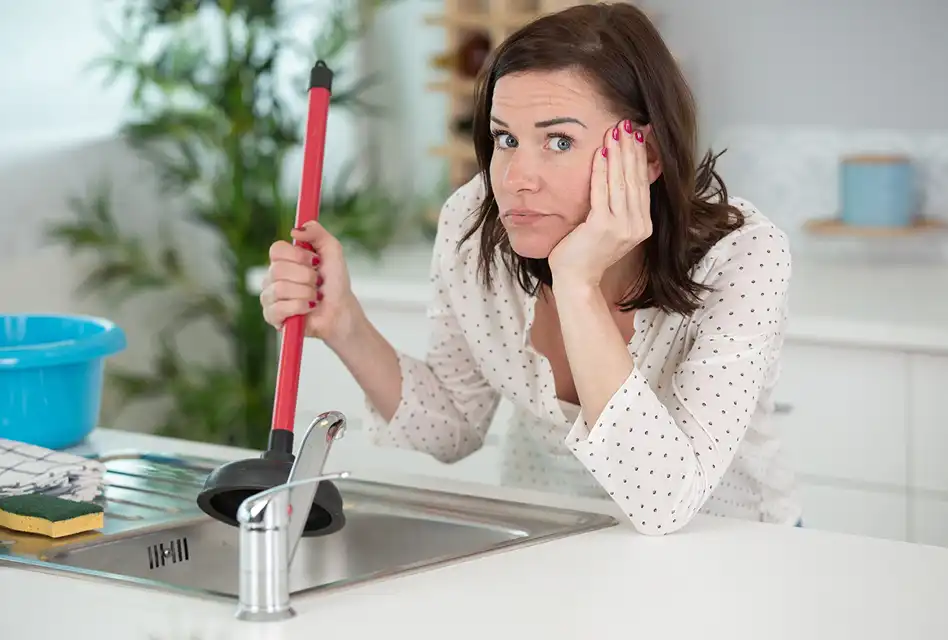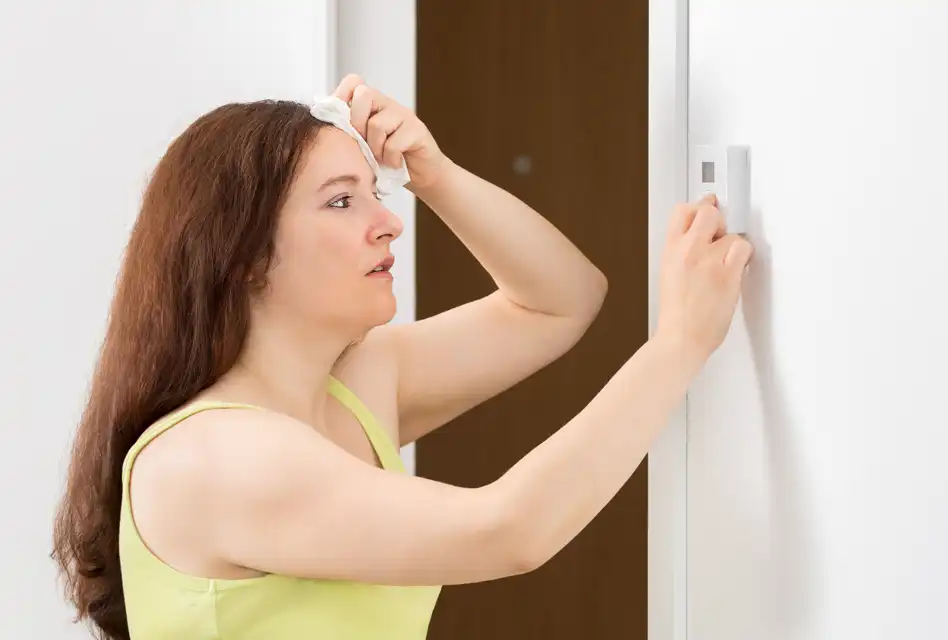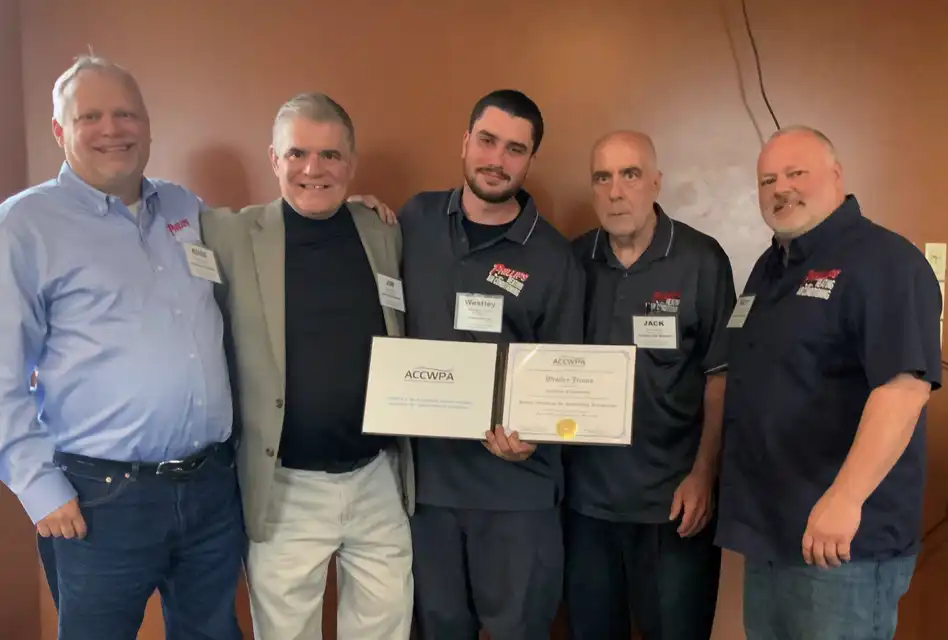UH, OH. The Heat Has Gone Out!
It’s a Pittsburgh winter morning, and you wake up early and jump out of bed – and you come to realize it’s so cold that you just want to jump back into bed and hide under the covers. If the heat in your home unexpectedly stops working, you might question if there is a problem with your furnace. It may be something simple you can take care of on your own, or you may need to bring in some professional help for a more complex problem.
The first thing to do when your house gets unusually cold is to check for simple problems with a simple solution. When you come to the conclusion the furnace has gone out, take these preliminary steps recommended by your Pittsburgh-based HVAC experts at Phillips Heating & Air Conditioning:
- Before panicking, flip on a light switch and see if the power has gone out. You may be able to call the utility company simply, report the outage, and get your heat running again fairly soon.
- If you have a gas furnace and your heating system abruptly fails, make sure to shut off the gas straightaway to avoid carbon monoxide poisoning.
- Close all windows and secure doorways. You’ll want to make sure your home is as airtight as it can be, so the residual heat won’t be able to escape. With that in mind, HVAC techs recommend ensuring no air leaks before closing your drapes. As for doors, you can roll up a trowel and place it along the bottom as a makeshift draft stopper.
- If you have one, use a standby generator to get basic appliances, like a space heater, to work. Remember generator safety – prevent carbon monoxide poisoning by not running your generator indoors or near any open windows.
- Don’t open your refrigerator or freezer – this will only add cold air to the room.
Okay, once you’ve made these checks, there are some mechanical issues you need to look at.
- Be sure to inspect the furnace power switch. Some furnaces have an on/off switch that is frustratingly easy to switch off by mistake. This is especially true if you’ve had other technicians near your furnace, such as a cable installer, electrician or plumber.
- Your furnace may not be heating your home enough due to restricted airflow. As mentioned several times in past blogs, a likely culprit is a dirty air filter. The heated air won’t exit the vents or ducts if there’s a lot of dirt or debris trapped in the filter. Again, you should change your filter every three months at a minimum.
- If the power button isn’t the issue, check the power supply and see if any of your electrical breakers have tripped. Occasionally, resetting a tripped breaker can get your furnace going again.
- However, if the power keeps tripping off on your furnace, that probably signals that a safety feature has been triggered, and it’s prudent to call a licensed professional such as Phillips Heating & Air Conditioning.
- On older furnace models, make sure the pilot light isn’t out or that the gas valve isn’t shut off. If it is, you can relight the pilot light.
- The chief role of your HVAC fan is to blow out and circulate heated air. It can’t properly push air out of the vents or ducts if this gets damaged or loose. Dirt and debris buildup on fan blades will also lead to insufficient heating.
- If your thermostat runs on batteries, try replacing them. You’d be amazed how often this simple fix gets a furnace running again.
- This might appear as a no-brainer, but you do need to turn your thermostat to the “heat” or “automatic” setting before your furnace clicks on. If you have the heat set to come on to keep the indoor temperature at 72 degrees and the thermostat is set to “cool,” your furnace simply will not turn on.Then again, smart thermostats can sometimes get “stuck” and must be restarted. The easiest solution is to remove them from the wall and reattach them to achieve a manual reset. It’s comparable to turning your computer on and off and takes less than a minute to do so.
- In the U.S., almost five in 10 homes use natural gas as an energy source. If your furnace relies on natural gas and it suddenly stops heating, pay attention to any odors you might smell. If your furnace isn’t functioning, you shouldn’t smell anything in the air. If you do sense a burnt or smoky smell or a gas-like smell, that can be a troublesome indicator that something is amiss, and you should get professional help right away.Note that if you have a carbon monoxide leak, you won’t be able to notice that on your own, so we advise you to mount carbon monoxide detectors and smoke alarms in your home. This is especially significant for gas-fired furnaces since combustion produces carbon monoxide, which is an odorless, poisonous gas.If your carbon monoxide alarm goes off, get everyone out of the house a.s.a.p. Open windows as you exit and call your natural gas provider to inform them about the potential leak.
If none of these issues are the root cause of the problem, or if you feel ill at ease dealing with them on your own, the next step when your furnace goes out is to contact the HVAC professionals at Phillips Heating & Air Conditioning. We can look at your furnace’s gas and electrical components to see where the problem lies.
All right, you’ve decided to contact a heating professional. Just what might be the problem leading to no heat in your home?
There are a number of issues that might be the cause of your heat going out. Here are several of the more customary problems.
Damaged blower motor
For the furnace fan to work in the first place, the blower motor should provide it with power. So, if your furnace’s motor dies, the fan won’t rotate, and no heated air will blow out of the unit.
Blower motors frequently break down from corrosion, which can be due to poor venting and ductwork. Condensation, which is quite common in air conditioners, can also spread to your heating element. When moisture enters the heater, oxidation can occur within the motor.
Broken belt
Some HVAC systems have a belt-driven motor that conveys rotational energy to the fan. This energy then runs the fan and makes it operate to blow heated air. But to transfer enough energy to the motor, there has to be proper tension.
HVAC belts can become slack over time, and this inadequate amount of tension can then overstress the belt, hastening its failure. It won’t take long for the belt to snap. This, of course, is the time for a replacement.
If you smell burning rubber, turn off the system immediately and call your heating specialist. This is most likely due to an overstressed or broken belt. This can damage not only the belt but other key components, such as the motor and fan.
Cracked heat exchanger
A heat exchanger either heats the air in a furnace or the water in a boiler. It burns natural gas, liquified petroleum, or other heating oils.
As the heat exchanger burns these sources, it creates combustion gases, including carbon dioxide, but keeps them trapped inside to prevent gas leaks. Over time, the exchanger will develop cracks. After all, these metals will wear away. When this occurs, these combustion gases can leak and cause harm, even death.
If your furnace suddenly dies and smells odd (like formaldehyde), immediately ring up your local HVAC tech.
Of course, it’s wise to consider mounting high-quality carbon monoxide detectors at home. The detectors will sound an alarm when there’s an elevated quantity of indoor CO.
In the meantime, stay warm while waiting for the HVAC technician . . .
Okay, you’re waiting for the HVAC experts to arrive. So, what can you do to keep yourself and your family comfortable in the meantime? Here are some stress-free examples that can certainly help out.
Employ a space heater
If a power outage wasn’t the reason for your furnace going out, you might want to use a space heater to stay warm. Focus your heating efforts on one main room, most likely the living room. Close the doors or block open doorways with blankets to keep the heat in the room and urge your family to remain in that one warm space.
Ensure you place the heater on a flat surface and don’t sit on or drape anything over the heater. Space heaters should NEVER be left unattended.
Remember, too, that anything that produces heat by burning fuel or gas needs a dedicated exhaust vent. Otherwise, you can end up poisoning yourself with carbon monoxide. Many propane heaters and camping heaters are only safe to use outdoors!
It probably goes without saying – don’t use devices such as grills to attempt to heat your home. Doing so poses a chief fire hazard and can generate hazardous fumes.
Use your fireplace
If you have a fireplace, you’re in luck. Adjust the flue and make sure the fireplace is venting properly, and then go ahead and light a fire to add warmth.
Light candles
If you don’t have a fireplace, you can still utilize candles to help keep you warm. Use the ones that are produced with paraffin, as they can burn longer than conventional candles. Plus, they won’t drip wax on the floor and table surfaces around them, so it’s a great way to stay warm without worrying about these issues.
Pile on blankets
Whether you’re sitting around waiting for the HVAC tech to show or you’re trying to sleep with no furnace, pile on the blankets and sleeping bags for added warmth. If you’ve effectively kept one room warm with one or more heating sources, think about a slumber party in that room to gather together for warmth.
Turn on your oven and bake something
Consider thinking about baking when your heat goes away. Not only will you have snacks such as warm pastries and cookies to gobble up but running the oven will also offer your home a considerable amount of heat for a short period.
Close off vacant rooms
By closing off unused rooms in your home, the heat won’t disperse into spaces that don’t need to be heated.
Bonus tip: Maintenance upfront will keep your furnace from breaking down in the first place
Preventative maintenance will help keep your heating system running efficiently. It also will prolong the lifetime of your system since its parts won’t break down earlier than anticipated.
You can do several things yourself, such as changing out the air filters on a routine schedule or making sure nothing is blocking your system’s indoor or outdoor components. There should be at least two feet of clearance space for objects such as furniture for the indoor unit. The outdoor unit should be cleared of tall grass, leaves, and other such debris.
Finally, scheduling a yearly maintenance check-up with the Pittsburgh HVAC professionals at Phillips Heating & Air Conditioning will go a long way to helping you make sure your furnace won’t go out in the middle of a frigid Pittsburgh night.







